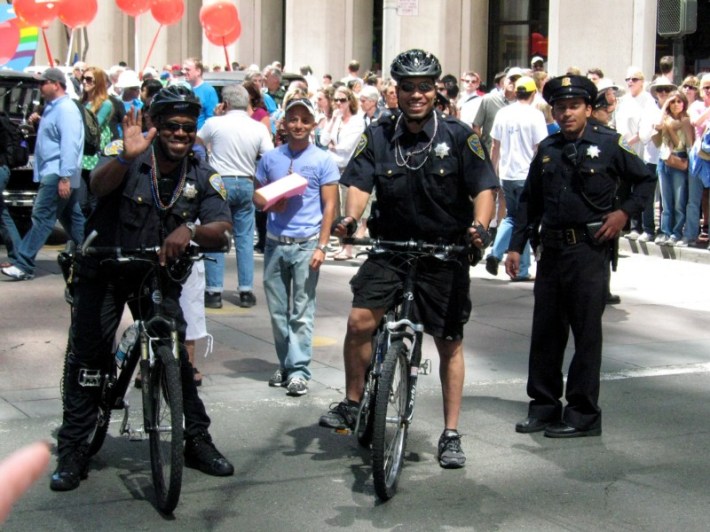
While we all know that writers of Voter Information Pamphlets sometimes stretch the facts, they shouldn’t be allowed to just make stuff up, right?
There is a completely false statement in the “Rebuttal to the Opponent” ballot argument for Prop. R, the Neighborhood Crime Unit proposition--it says that Prop. R would “significantly increase the number of beat cops and bike patrols assigned to our neighborhoods.” But the text of Prop. R makes no reference to bike patrols. It does say that bike theft is one of the crimes the new unit created by the proposition should focus on, but that's not the same as bike patrols, is it?
So what does one do if one finds a false statement in a Voter Information Pamphlet? It turns out the only way to challenge it is to go to the Superior Court and file a "petition for a writ of mandate." So last week I filed one.
The lead author of the argument I'm challenging is Scott Wiener (co-signed by the Mayor, Malia Cohen, Mark Farrell, and Katy Tang). So I emailed him a copy of the petition and asked if he was open to discussing a resolution to this issue. He hasn’t responded, but the Examiner quotes Wiener as saying his argument is “completely accurate.” He also says that the challenge to the accuracy of the ballot argument “is exhibit 'A' for why we had to go to the ballot with Prop R.”
You can read my petition. (Please excuse the typos in my rush to submit by the deadline. Blargh!) It includes the legal text of Prop. R and the text of the rebuttal argument. It’s a searchable PDF, so try searching the legal text for “bike” or “bicycle” and see if I missed anything.
I’m for police bike patrols. As a regular bike rider, bike advocate, and member of the San Francisco Bicycle Coalition, I think it’s great for police to share the experience of biking in the City. Bike patrols also seem like an effective middle ground between foot patrols and driving a squad car. But Prop. R doesn’t mention bike patrols and proponents should not claim it does in the Voter Information Pamphlet.
Let's hope the Superior Court agrees with me. Any lawyers out there interested in helping navigate this process?
Setting aside the “bike patrol” issue, I oppose Prop. R because it’s poorly conceived policy. I fully support SFPD increasing its focus on foot patrols and community policing. But Prop. R will assign 60 officers to what is called a “Neighborhood Crime Unit” that won’t be assigned to neighborhood police stations — they would be a centralized unit based out of SFPD’s Mission Bay Headquarters.
These officers would be required to coordinate with the Department of Emergency Management, Department of Public Health, Department of Homelessness and Supportive Housing, Human Services Agency, and other departments, as well as conduct recurring meetings with police captains, community members, and organizations. They would also respond to non-emergency 311 calls.
It’s totally unrealistic to expect 60 cops (out of a department with nearly 2000 officers) to do all that AND walk foot patrols in every neighborhood!
Assuming those 60 cops will be divided into two shifts and that they’ll walk foot patrols in pairs, that’s 15 foot patrol shifts to cover the entire city — when they’re not busy meeting with all those departments, community groups, district captains, or responding to 311 calls. I would enthusiastically support a proposition to increase police foot patrols and protect them against being reassigned to other activities, but Prop. R doesn’t do that.
Either way, Prop. R proponents should not be allowed to claim that it increases “bike patrols" when it does not.
Jeremy Pollock is a San Francisco political geek, bike rider, and bluegrasser. His life in twitter profiles can be reduced to @theLeagueSF, @saveSFbike and @BeautyOperators. Pollock is also an aide to Supervisor John Avalos, but is not filing the writ or writing this post in an official capacity.
This post, which originally appeared on Jeremy's blog, was edited.





